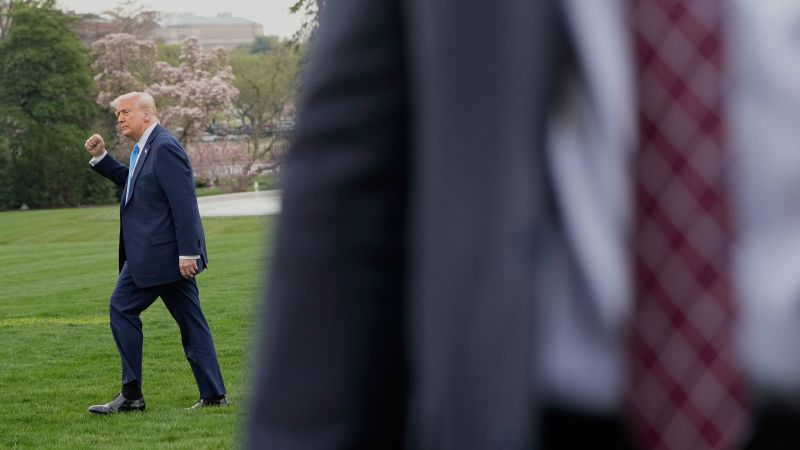
Kremlin responds to Trump’s "angry" remarks about Putin The Kremlin has responded to President Donald Trump’s remarks about being “very angry” and “pissed off” with Russian President Vladimir Putin. Trump was referring to Putin’s stance on putting Ukraine under a “temporary administration” while the two nations work toward a peace deal. Addressing these comments Monday, Kremlin spokesperson Dmitry Peskov said that some of the wordings were paraphrased rather than direct quotes, acknowledging that “several various statements” were made.
According to Peskov, Moscow continues working with Washington on rebuilding bilateral relations as well as peace in Ukraine. “We continue to work with the American side, first of all, on building our bilateral relations, which suffered enormous damage during the previous administration,” Peskov told reporters on a regular conference call. Peskov went on to say, “We are also working on implementing some ideas related to the Ukrainian settlement.

The work is underway, so far there are no specifics that we would have to inform you about.” Asked about the possibility of a call of the two leaders this week, Peskov said it is not in Putin’s schedule yet but can be very promptly organized “if necessary.” Trump had fiery words for 2 US adversaries yesterday.
Catch up here In stark terms, President Donald Trump heaped criticism and threats on Russia and Iran in an interview with NBC News on Sunday. If you tuned out for the weekend, here’s what you missed: On Russia: Trump said he was “pissed off” with Vladimir Putin, and that he could impose more tariffs on Moscow if the Russian president doesn’t cooperate on Ukraine war talks. “I was very angry — pissed off — when Putin started getting into (Ukrainian President Volodymyr) Zelensky’s credibility,” Trump said.
The US president referred to Putin calling for new leadership in Ukraine. “But new leadership means you’re not gonna have a deal for a long time, right?” Trump said. Trump said if a deal doesn’t come together and he thinks “it was Russia’s fault,” he would put secondary tariffs on “all oil coming out of Russia.
” The president’s tone stood in stark contrast to his previous statements about Zelensky — and his calls for elections in the war-torn country. On Iran: As he pushed for a new nuclear deal, Trump sent a striking warning to Tehran after Iran’s president rejected Trump’s overture for negotiations. “If they don’t make a deal, there will be bombing,” Trump told NBC.
Iran’s Supreme Leader Ayatollah Khamenei said Monday it would respond in kind to any US military action against it. Trump also said he could reimpose economic pressure on Iran. “There’s a chance that if they don’t make a deal, that I will do secondary tariffs on them like I did four years ago,” he told Welker.
In his first term, Trump pulled the US out of a 2015 nuclear deal between Iran and world powers, a pact that imposed strict limitations on Tehran’s nuclear program in exchange for sanctions relief. Analysis: Here's why Trump’s "Liberation Day" tariff transformation is so risky President Donald Trump is set to gamble the success of his second term, the economy and the personal finances of millions of Americans this week on his long-held belief that tariffs can re-create a golden age of US wealth and independence. Or is he? Such is Trump’s capricious leadership that nothing is certain until it happens.
And adamant orders — especially on trade — are often reversed as soon as they are given . But Trump promises that Wednesday, April 2, will be “ Liberation Day ” — when he imposes reciprocal dollar-for-dollar tariffs on nations that levy duties on US goods. His most robust move yet to transform the global trading system could end up affecting every American, raising prices at a time when family budgets are already stretched.
But the president is implicitly asking everyone to buy into a strategy that promises tantalizing future benefits but requires sacrifice for years to come. Trump’s trade-war policies have already wiped trillions of dollars of stock markets — the Dow Jones Industrial Average plunged 700 points on Friday alone — and worsened fears of a recession as consumer confidence ebbs . He’s also alienated US allies as his foreign policy starts to unravel the Western system of alliances .
As Wednesday’s deadline approaches, the president is further damaging the confidence on which economic stability depends by raising contradictory expectations — suggesting, for instance, that some nations or industries may get opt-outs from the new tariffs. His whiplash leadership risks as much damage as the policies themselves. Trump reasons that by imposing tariffs on imports, he’ll force firms to relocate manufacturing and supply chains to the United States, thereby creating jobs and reviving regions left destitute by globalization.
The downside, however, is that tariffs will spike prices for consumers weary of the high cost of living. And there’s no guarantee firms will bring production back stateside, since such a reorientation would take years and presumably outlast Trump’s time in power. Read Collinson’s full analysis here.
.















